|
August was a roller coaster. In the outside world, both the Democratic and Republican conventions happened, as well as more protests, more COVID deaths, and an explosion in Beirut. But, to be honest, I could barely pay attention to such world-shaking events, as my own little apartment suffered its own little shake ups. Muggy heat caused swarms of mosquitos to nip at my skin, coyotes roamed near my apartment, power outages threatened our air conditioning, my roommate’s dog died, my roommate’s mom hit her head, my emotions swung from depressed to vulnerable to inspired, and through it all, I had to get my third novel, Company, ready for publication.
I have published 3 times before, but I’ve never done it as fast as this. Since the beginning of the year, I had the date September 5, 2020 (my sister’s birthday) in mind for when I wanted to publish Company. By July, I had just finished smoothing my writing into one readable manuscript. I had one month to edit Company, both for clarity and flow and for mechanics (spelling and grammar). I also had to format the novel, get it onto Amazon, make announcements, and run a marketing campaign. I had a lot to do, so, naturally, I spent the first week of August feeling depressed. It did not help that, almost as soon as August began, my roommate Rita’s old dog, a German shepherd named Stitch, had to be put down. He’d been diagnosed with bone cancer a few weeks earlier, and it had escalated quickly. As Rita mourned her dog, I mourned my story. I wrote in my diary: “When a story is done, it feels, to me, less like giving birth, and more like grieving something that is dead. It’s like casting off a piece of my soul, a snippet of my life, into the heartless world. Editing it is basically window dressing, putting the story in funeral clothes. It is leaving me, and I need to put on a song and dance for the world, but that is hard to do.” Trying to edit in this state seemed like too much, so instead I spent that first week re-reading my entire manuscript, both to let it go and to get an idea of what needed to be fixed. Normally, I get critical when I re-read my work, but I tried to look at Company without judgement, and I ended up feeling good. I came up with a plan to read out loud and edit three chapters a day.
1 Comment
I was surprised to find that I had a free Sunday afternoon in August. But I did, so I went to Netflix and browsed my considerable “To Watch” list. The King caught my eye. The trailer evoked a sense of epic-ness, with politics and war and a character undergoing a personal transformation. The King came out in 2019, but I put off watching it, because it was the kind of movie I needed to be in the right mood to see. I was in the mood. I gave it a shot. Prince Henry (Timothee Chalamet), known to his friends as Hal, does not want to be king. He despises war and despises his father, King Henry IV (Ben Mendelson), a man who sees enemies everywhere and has plunged England into civil unrest. Once his father dies, Hal takes up the crown, vowing to be a different sort of king than his father. However, his reign is quickly tested by a series of provocative gestures from France. With his loyal friend and military advisor Sir John Falstaff (Joel Edgerton) and with the taunts of the French Dauphin (Robert Pattinson) in his ears, the young King Henry V advances to war, where his rule and his character will be put on display on the fateful field of Agincourt.
I have seen historical epics screwed up so many times. But this movie got it right. I loved The King. It was the kind of movie that seemed tailor-made for me. One of the things I most appreciated was that it didn’t attempt to women by throwing in a tedious romantic subplot. I like romance, don’t get me wrong, but Hollywood screws up it up so often that I’d rather they didn’t attempt it at all. The few women characters who did show up in The King were insightful and unique and treated with respect. Most of the movie dealt with a very masculine and male-orientated culture--and I was perfectly fine with that. Prince Hal is initially portrayed as a drunken, debaucherous prince, the insinuation being that he is unfit to rule. The trailer asks how this foolish, immature prince can be transformed into a respectable king. However, once I started to watch the movie, I quickly understood that it was not Hal's character that was in question. Prince Hal’s revelries are portrayed as a reaction to the violence that permeates Medieval Society. In these times, lords and princes did not stay cloistered in their castles; they fought and killed, in the battlefield, in the most intimate sort of way--Hal, included. Hal’s drinking is a kind of protest against his father’s rule, against the pointless death and killing, and against society itself. The old king calls Hal sickly and weak, and yet he turns out to be a damn good fighter. The nobles think he is shirking his responsibilities, and yet Hal will intervene when he deems it important. The problem is not Hal’s character; the problem is society. Society not only perceives Hal wrongly, it is, in fact, sick. Pointless feuds and violence are destroying the souls of its men, Hal’s included. As much as I was enjoyed Hal and his journey, my favorite character was, hands down, his loyal friend, Sir John Falstaff. Falstaff, more so than Hal, plays the role of a drunken fool, but he has an inner strength and wisdom born of hard-won experience. Falstaff has shades of Uncle Iroh, from Avatar: the Last Airbender, which I say with the highest respect, because Iroh is one of the few characters I not only love, but aspire to be. The beating heart of The King is the relationship between Hal and Falstaff, and I would absolutely take their friendship over any contrived and shallow romance. The first half hour of The King is a lead-up to Hal becoming king, and it serves to inoculate the audience into Medieval society. Some people may find this slow, but I was fascinated by this glimpse into a very different culture; it reminded me of why I loved history. I did have a bit of trouble understanding dialogue, which could be due to the sound quality on my TV. I remedied this by turning on the subtitles. The dialogue, by the way, is peppered with modern curse words, but on the whole, I think it did a good job of giving us the flavor of the era while still being relatable. The King felt Shakespearean but translated for a modern audience. Once Prince Hal becomes King Henry V, the plot builds to the Battle of Agincourt. Now, I don’t consider this a spoiler, because The King is historical fiction, and so it seems fairly obvious that the event that made a famous person famous is going to be addressed. But if you are sensitive to spoilers, I will make it now known that I will be discussing an event that takes place toward the end of the movie. Hello, friends. I’m so pleased and proud to announce that my third novel, Company, will be published on September 5, 2020, available as an e-book on Amazon. Priced at $4.99, it’s less than a specialty coffee at Starbucks and will stay with you longer. A physical print version of the book will be coming out in October this year. If you don't mind, I’d like to tell you a little about what Company is and why I’m so proud of it. Company tells the tale of an unlikely friendship between an amnesiac ghost and an abandoned imaginary friend. As a ghost, Curtis is trapped in Thornfield Manor, a beautiful, but isolated house in the California mountains. Bored and alone, his memories are slowly falling away, including the memory of his death. One day, a stranger arrives at Thornfield Manor. After her parents died, Charlotte created an imaginary friend and “sister” named Jenny to deal with her depression. But after Jenny develops a mind of her own, Charlotte is desperate to get rid of her. Charlotte dumps Jenny at Thornfield Manor. As the only two beings who can see and interact with each other, Curtis and Jenny strike up a quick friendship. Jenny is determined to solve the mystery of Curtis’s death and help him cross over. But Curtis worries: if he does cross over, what will become of Jenny? I’m proud of Company, because I put my heart and soul into writing this beautiful and thought-provoking story. It has a little bit of mystery, a little bit of romance, and a little bit of philosophy. It’s an emotional book, and some scenes will leave you feeling choked up, but it has a sweet ending that I hope will make you smile. Company is the kind of book I’d imagine someone reading on a vacation in the mountains, sitting outside a log cabin in the cool of the morning, with a hot mug of coffee or tea or hot cocoa. Believe it or not, I came up with the idea for a ghost and an imaginary friend back in 2012. At that time, I wasn’t sure if the idea was strong enough to be sustained for a whole novel. So, in 2013, I decided to write it for National Novel Writing Month, an event that challenges you to write 200 pages in 30 days. To my surprise, I completed an entire rough draft of Company in a month. But I got stalled on revision for many years. Then in 2018, a tumultuous and uncertain year for me, I looked at Company again and found new inspiration. For the next two years, I began revising it whole-heartedly, using all my skill as a writer to hone and polish my vision. I hope that when you read it, you’ll get swept up in the characters, the friendship they form, and the journey they make together. Unlike most novels I’ve written in, Company takes place in the real world (California) and in modern times (2019), so it is more accessible to people who are less inclined toward traditional fantasy. It is best for teens and adults; younger children probably won’t be interested in it. Company has a few curse words and deals with death, and for those reasons, I’d put it at a PG-13 rating. If you decide that you want to buy Company, it is available for pre-order right now--just click on the button below to reserve your copy. If you need more information, I have the first chapter available on my blog. Over the next few weeks, I hope to add a more sample chapters and bonus features that share my experience writing this novel. If, however, you decide this is not the book for you, that’s okay, too. I appreciate you listening to me with an open mind. I know from experience that certain books can hit you in a way that stays with you for the way of your life. It’s my hope that, for some readers out there, Company may be that book. However, finding those readers is still a struggle for me. As an independent author, I don’t have a big marketing team, so I need all the help I can get in order to spread the word. If you think of anyone who might like this story, please send them this link. Or, if you have a social media account (Facebook, Twitter, Instagram), please post there. Thank you again. I appreciate your love and support.
Sincerely, Rebecca Lang Traditionally, July is a braindead sort of month for me, but the world has turned upside down, and this July, I was filled with passion, creativity, and productivity. Part of that was out of necessity. As Company, my novel of a ghost and an imaginary friend, nears its publication date, and I knew I needed to buckle down and get it done. But part of my creativity may have been an odd reaction to the anxiety engulfing the outside world. By the time June ended, the world outside my door was essentially back in shut-down mode, with cases of the Coronavirus rising in California and other parts of the country. The optimism that swept through May of America re-opening for business had given way to uncertainty and pessimism. We were back to square one, and in some ways worse. This caused a lot of anger. Everyone, it seemed, was either angry about having to wear face masks or angry at the people who refused to wear them. I started the month feeling paralyzed. Small tasks, like returning a library book, felt overwhelming. Fortunately, I had poetry to help me through it. Toward the end of June, I had the sudden urge to read poetry, which I attributed to needing to edit Company. When I know I need to pay close attention to the prose (the ebb and flow of sentences; the choice of words; the way language affects the reader), I can use poetry to jump start my creativity. Poems are, after all, a showcase for language. So I “bought” a free book of poems on Amazon called “Growth” by Karin Cox, and signed up for the “Poem of the Day” for both Poets.org and The Poetry Foundation. As I read my daily poems, I was hit by the sudden urge to write poetry. This did not come at an opportune time. I had about two months to piece together Company, and what I had was a beautiful mess. I had worked hard in May and June to re-write all the major scenes and emotions, and I had a vision in my head.
A vision which was not comprehensible to the reader. For example, sometimes I wrote a scene from multiple point of views, with contradictory information. Other times, I wrote pages of emotional expression and philosophical thought un-anchored by plot or setting. A few things I left blanks, with parentheses of (Note: Add setting) or (Note: Add reaction), letting me know to fill it in later. Other times, I just had too much material--20 page chapters that needed to be cut in half. Basically, it was the writing equivalent of having a messy desk; I knew where everything was, but no one else would be able to find a thing. I really hadn’t intended to watch this movie. Honestly, I’ve hardly been able to watch any movie without the dog interrupting and whining for attention. But I do still watch movie review shows on YouTube, and as I was watching the John Campea show, he raved about “Husavik,” the final song from Eurovision. I decided to check it out. The song was pretty. I started watching other YouTube videos of Eurovision songs. Then I got curious. Eurovision was out on Netflix, it was free, and it was not a movie that required my undivided attention. At last, I decided to check it out. Eurovision Song Contest: The Story of Fire Saga is a light comedy about Lars and Sigrit, a singing duo that go by the name Fire Saga who hail from a small town in Iceland. Lars (Will Ferrell) dreams of winning the Eurovision song contest in Europe and proving himself to his father. Sigrit (Rachel McAdams) supports his ambitions but would prefer to marry Lars and live a simple life in their hometown. When they find themselves unexpectedly representing Iceland in the Eurovision Song Contest, Sigrit meet a flirtatious Russian singer named Alexander Lemtov (Dan Stevens) who encourages her to find her voice. But Lars’ jealousy and ambition cause cracks to form in the group and may just cost Fire Saga their chance at winning. As I said, I watched the movie mostly because of the songs, which are really catchy and surprisingly good. I ended up grooving to “Double Trouble,” Fire Saga’s official entry into the Eurovision Contest. I wanted a full version of “Volcano Man.” And even though Alexander Lemtov’s “Lion of Love” has some of the cheesiest, cringiest lyrics, I can’t stop listening to it, because let me tell you, the man can sing. Sprinkled in are glimpses of other country’s entries, and they sound like real songs you’d hear on the radio. I know it’s a comedy, but the only reflection of that genre are a couple of silly lyrics and a vague 80s or 90s over-the-top vibe. I’m no music critic, but I fell in love with the songs and binged on them hard. But what was the movie like? I found Eurovision amusing and pleasant. It was set in a world where you knew that nothing too horrible could ever happen, and that was nice. I enjoyed the fluffy escapism. I didn’t find it laugh-out-loud funny, but I grinned at a few gags involving a gaggle of American tourists, a bit of dark humor with a ghost, and some elves who may or may not have been extreme in their measures to ensure the couple got to Eurovision. There were some crude instances of sexual humor that I didn’t find funny, but these were few and far between. For me, Eurovision was at its most sweet and heart-warming when it told the tale of a small town girl who finds her voice on the big stage. I connected to Rachel McAdam’s Sigrit early on, in a scene where she brings biscuits and alcohol to cute little houses in the green hills, where the elves live. Sigrit asks the elves to help them get into the Eurovision song contest, so that Lars can fulfill his ambition and they can hopefully have a life together. She is so earnest and adorable… and who doesn’t love elves? She won me over, and I was rooting for her. Typically, my plans for the 4th of July include hanging out with my family, eating hot dogs and hamburgers fresh off the grill, and making some kind of red, white, and blue dessert. But with COVID-19 raging, I was only able to do one of those three things, i.e., stick some strawberries and blueberries on a store-bought vanilla cupcake and call it a day. From my quarantined apartment, I called my family to wish them a happy Independence Day, ordered a pizza, and watched Hamilton on Disney +. It seemed like the most patriotic thing I could do.
Hamilton tells the life story of Alexander Hamilton, one of America’s founding fathers, who is most famous for co-authoring the Federalist papers, setting up a national bank, and dying in a senseless duel. In this musical play, Alexander Hamilton (Lin-Manuel Miranda) is an immigrant who is “young, scrappy, and hungry” and sees the America Revolution as a way to make a name for himself. Unlike his friend Aaron Burr (Leslie Odom Jr.), who advises him to “talk less, smile more,” Hamilton is vocal about his beliefs, and his gutsiness lands him a position under George Washington (Christopher Jackson). With his loyal wife Eliza (Phillipa Soo) by his side and famous friends, Hamilton rises to the heights of political power--and starts to self-destruct. As his fateful death draws near, what will his story be and who will be the one to tell it? I can’t deny Hamilton was well-done. The music, the dance, the spectacle--it is beautifully crafted, it is impressive, and it hits your emotions hard. But it hit me in a way I didn’t expect, and that’s really what I want to write about. After watching it, I raged, I cried, and now I am going to rant. This is your warning. I have strong opinions about the role of women in Hamilton, and I am going to express my opinions. But first, I want to talk a little about what the play actually is. Hamilton is a big, splashy Broadway musical first and a historical fiction second. It’s not meant to be a critique of history; in fact, I would go so far as to label it a revisionist fantasy. It reinterprets American history through a modern lens, not unlike how certain Shakespeare productions reinterpret their source material. This makes history recognizable to a modern audience, and because we recognize it, we can relate and empathize. Although it includes some politics, Hamilton is, for the most part, about the men who struggled through impossible odds to create a new country. It is a personal story set amid an epic backdrop. In other words, my kind of story. I enjoy a good epic. Hamilton makes a conscious choice to cast people of all colors and races in roles that are historically White. I find this refreshing and inclusionary. I know that some critics have said that, in this environment, simply re-casting the Founding Fathers doesn’t go far enough; we need to look more critically at American history. That may be, but I think I understand what the play’s creator, Lin-Manuel Miranda, was trying to do. I remember, in high school, I would grapple with history, trying to make sense of it and see myself in the people who changed the world. Lin-Manuel Miranda obviously saw himself in Hamilton, an immigrant, who, through ambition, intelligence, and hard work, was able to leave his mark on American culture. I don't think there's anything wrong with this. This is, after all, art, and art does not always have to be accurate. It can be fun. Hamilton is trying to be fun. It’s like kids playing dress-up. It has that joyful feeling of imagination, the boundless possibility that you can do anything and be anyone you want. And I like that feeling. As the play progressed, I found myself getting swept up in a patriotic fervor. When the Battle of Yorktown raged and Americans toppled an Empire, I felt proud, I felt happy. I thought, I am this and this is me, and I am America. In this moment, I felt bonded with my country. And then I glanced in the background of the stage and saw the women walking back and forth like ghosts. That’s when the sour feeling hit me. I realized not everyone is included; women don’t get to have fun. Yes, women are present in the play, but they’re all love interests, and moreover, love interests to Hamilton. A few background dancers are women, but they are not given names or songs. They are like the real women in history, I suppose, living and dying and doing their part to change the world with no name and no fame and no glory. “Who tells your story?” the music asks, but for women, the answer is, “No one.” The Lost Skeleton of Cadavra is an Example of (Intentionally) Bad Writing That is Very Good7/25/2020 The world is sort of crazy, I’m busy with my writing, and the movie theatres are closed. For these reasons, rather than seeking out new movies, I’ve been re-watching some of my old favorites, especially comedies. One such movie wearing out my DVD player right now is a very strange and obscure cult flick called, The Lost Skeleton of Cadavra. The Lost Skeleton of Cadavra has the feel of a bad, black-and-white monster movie from the 1950s, though it was made in 2003. A scientist named Dr. Paul Armstrong (Larry Blamire) and his wife Betty Armstrong (Fay Masterson), the wife of a scientist, are searching for a meteor made of a rare metal known as atmospherum. Dr. Paul Armstrong, a scientist who studies rocks, hopes to use the meteor to do science and better all of mankind through science for the benefit of all. (This is an example of the kind of intentionally repetitive dialogue that riddles the movie.) Meanwhile, evil scientist Dr. Roger Fleming (Brian Howe) hopes to find and revive the famed Lost Skeleton of Cadavra in order to rule the world. Meanwhile, a married pair of aliens named Kro-bar (Andrew Parks) and Lattis (Susan McConnell) crash land their rocket and can’t get home. Meanwhile, the aliens’ escaped mutant rampages through the woods. Roger learns he can only revive the skeleton through atmosphereum. The aliens learn they can only fix their ship through atmosphereum. Everyone collides on the atmosphereum and hijinks ensue. The Lost Skeleton of Cadavra is a movie you can really only appreciate if you’ve seen lots of bad movies, particularly bad monster/ sci-fi movies from the 50s. I did not have this background the first time my uncle showed the movie to me, and as a result, I was perplexed and sort of bored. It just seemed like a bad movie. However, after watching several episodes of Mystery Science Theatre 3000, I came to truly understand what bad movies were, making The Lost Skeleton of Cadavra seem like a brilliant parody and also, surprisingly, a pretty good movie on its own merits. June has been a crazy month, so crazy, I’m not sure where to begin. Do I with the happenings of the outside world? How I learned via texts about looting in Best Buy near my parents’ house, then heard about George Floyd and a state curfew and defund the police and protests? Or maybe I should talk about America opening for business before spikes in the Coronavirus reached an all-time high? Disneyland was going to re-open in July; now it’s not. New movies were weeks away; they got delayed. Turmoil erupted just as I was making my mind up to re-enter the world.
Re-entering the world meant going to Panera to do my writing. There was a restaurant not five minutes from my apartment. I drove there and ordered coffee--small hazelnut, with cream and sweetener--and chose one of the tables bearing the green circle of availability. I’d sit with my homemade mask still on my face, not drinking my coffee (lest I need to run to the bathroom), with my computer, my composition book, and my cheap ball point pen ready to go. I had determined, early on, that the month of June felt like a test. It felt like a test on a national level, but for me, personally, I knew I needed to make substantial progress on Company or I was not going to get it published. It was time to buckle down and write. Unfortunately, I had a problem. My roommate’s puppy, Atlas, kept demanding my attention. He whined and barked and jumped up on the kitchen stove, all to get my attention. My roommate was struggling with a host of health issues and couldn’t bring the dog in her room. My bedroom is the living room, so there was no barrier to keep the dog’s yip from drilling into my ears. Even sitting in the patio, I could hear him. I give the dog a lot of attention. I walk him for 45 minutes in the morning and the evening. But I needed time in the morning to write. Specifically, I needed the hours between 9:00 and 11:00 in the morning, my most creative time. These hours were the keystone to my productivity. I could work around the dog’s schedule the rest of the day, but I needed these two hours unbroken. It got so bad that I decided to risk going out into the world again, just to get time to write. I spoke to my roommate and my roommate’s mother to make sure they were comfortable with me breaking quarantine. My roommate’s mother also volunteered to look after the dog in the morning. I was worried about finances, the cost of going out every day, but I learned Panera had a coffee subscription. For $8.99 a month, I could get unlimited coffee. I could afford that. It seemed like all the pieces were falling into place. Reading The Snow and the Darkness put me in a bad mood, so I decided to watch Tucker & Dale Vs Evil to cheer myself up. It’s a comedic riff on a hillbilly slasher movie, and it’s available on Netflix right now. I’ve watched it before, and I really love it, because it's clever and funny and leaves me feeling good.
When a group of college kids travel deep into the Appalachian Mountains for a camping trip, they encounter a couple of hillbillies who occupy a creepy-looking cabin. It seems like the perfect set-up for a horror movie. However, the hillbillies turn out to be harmless. Pragmatic, beer-loving Tucker (Alan Tudyk) and hopeless romantic Dale (Tyler Labine) just want to renovate their “vacation home” and go fishing. When Dale rescues college student Allison (Katrina Bowden) from drowning, a series of misunderstandings lead the remaining college kids to believe that Tucker and Dale are psycho killers. Soon the bodies start piling up in violent, gory, and hilarious ways. Tucker & Dale is a kind of a parody movie, and I, personally, love parodies. They play with the conventions of genre, which I’m always a fan of. But whereas some parody movies are content to rest on laughs and not really bother with a story (I’m looking at you Scary Movie), Tucker & Dale Vs Evil delivers a well-written tale with fleshed out characters and plenty of heart. Also, it’s funny. Really funny. The humor, as I see it, comes from two major sources. The first is that the college kids, through a combination of misunderstanding, bad luck, and extreme stupidity, end up killing themselves and each other. This is played for laughs, and it works because the deaths are so extreme, they’re ridiculous. However, this humor is predicated on shock value, and it becomes less and less effective as the movie wears on. Fortunately, the second kind of humor is more consistent, as it relies on the charms of Tucker and Dale. They’re pretty funny from the start, but it’s their reaction to the extreme circumstances that’s particularly hilarious. Tucker and Dale are horrified and confused by the profusion of college kids “killing themselves all over [their] property.” This humor never lessens because it is rooted in character. It also helps that the actors are funny, especially, Alan Tudyk, who has excellent comedic timing. The humor peaks in the middle, during a brutally gory and hilarious scene, where two college kids manage to kill themselves right near Tucker and Dale. Our two heroes first react in shock and horror, and then come together to try and figure out what’s going on. They decide that the college kids must have some sort of suicide pact and realize that the dead bodies are going to make the two of them look pretty bad. Right in the middle of cleaning up, a cop arrives. It’s a scene that’s genuinely tense, and watching Tucker and Dale squirm is oh-so-delightful. But even if the humor declines somewhat after that second act, the story continues strong. As the college kids decide to “fight back,” Tucker and Dale struggle to survive. One college kid, meanwhile, is morphing into the titular evil. Will Dale find the confidence to become the hero and win the affections of the girl? Will Tucker ever get to have a beer and enjoy his vacation home? I won’t spoil the ending, but it is a happy one. Now as I was watching this flick for the hundredth time, I was thinking that, in order to be effective, Tucker & Dale has to make us care for the title characters very deeply and not care about the college kids at all--and it has to do both at the same time. As a writer, I find this a fascinating study. How do you make an audience care for certain characters? Likewise, what makes an audience stop caring to the degree that they actively root for the characters’ deaths? I have my theories. I’ve been watching a lot of old episodes of Mystery Science Theatre 3000 (MST3K) on YouTube. It’s not a quarantine thing; I just like it. If you’ve never seen MST3K, it’s a T.V. show from the 90s that features a man sent up to space by villains who torture him by making him watch terrible old movies. The man and his robot friends keep their sanity by riffing and cracking jokes at the cheesiness on screen. (MST3K was revised briefly by Netflix; modern episodes can be seen there.) The movies are well and truly awful. You really cannot watch them without the jokes; even then, they can be hard to get through. And yet this, ironically, makes it perfect viewing for when I’m doing something else, like typing or cooking or playing Candy Crush on my phone. Typically, I watch the same episodes over and over, until I have all the jokes memorized and can practically recite the bad movies word for word. Sometime around the 20th viewing of an episode, I start to become oddly sympathetic to the bad movie. Once you get through the tedium, the confusion, the bad acting, the ugly visuals, and the lack of budget, there’s usually… something. An idea that went terribly wrong. What was it trying to be? What potential did it have? And why did it fail so miserably? One of many problems I’ve noticed with these bad old movies--the one that’s been on my mind lately--is that these movies don’t seem to understand whose story it is, possibly due to sexism or racism. The main character has to be a white male lead, even when, as I examine the plot and character arcs, I realize that it is not that person’s story. |
Rebecca LangWriter. Critic. Dreamer. Archives
January 2021
Categories
All
|

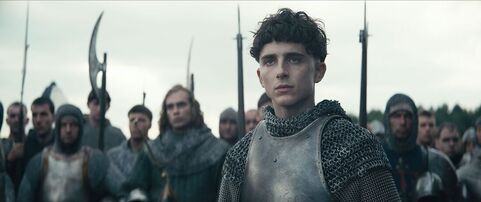
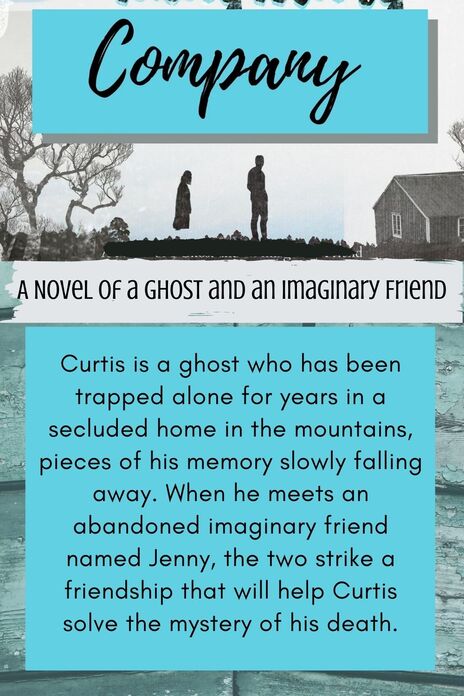
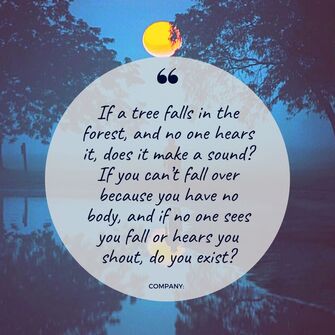
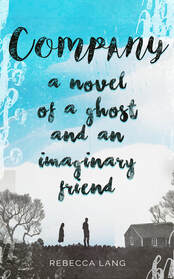

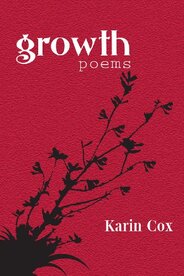
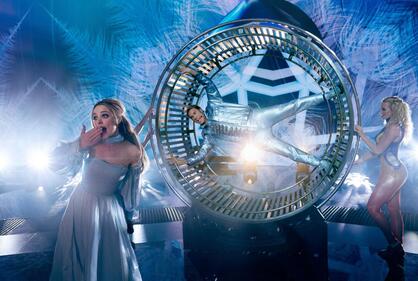
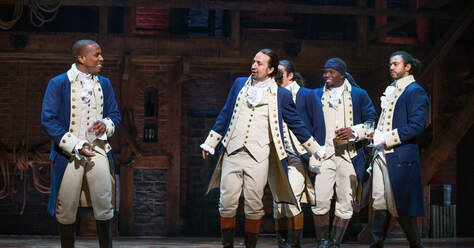
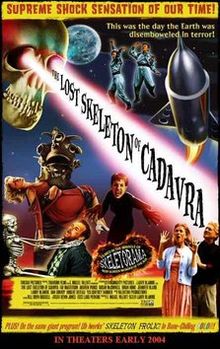

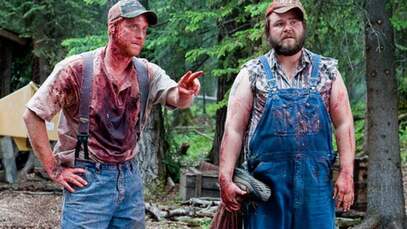

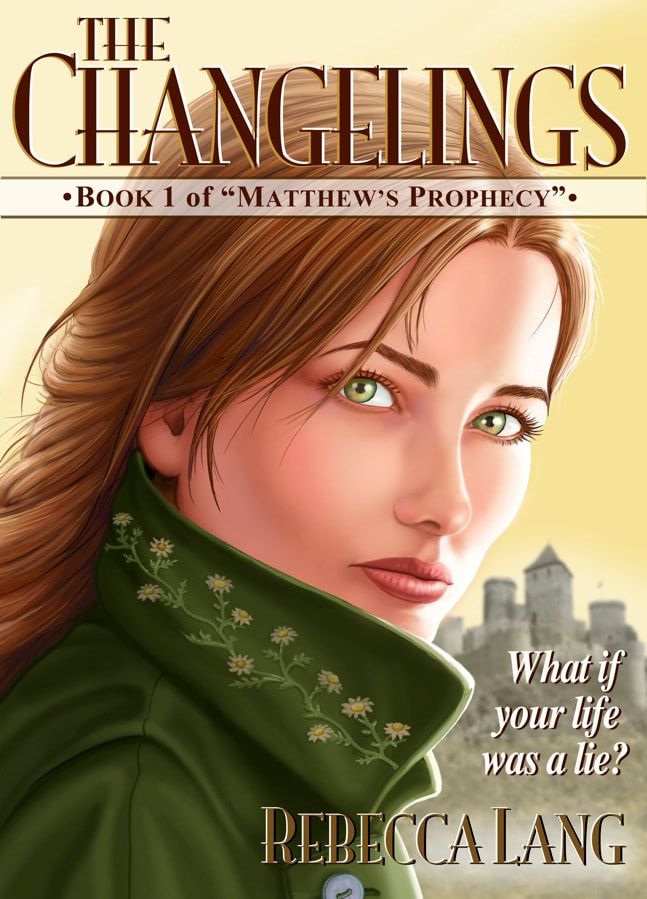
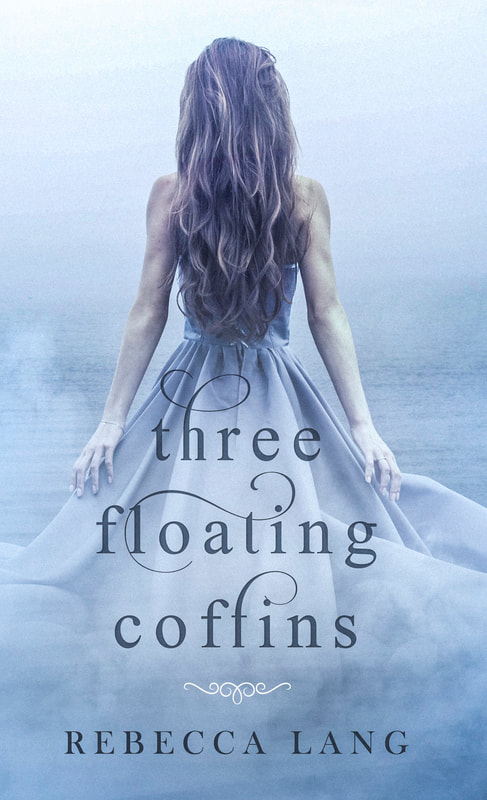
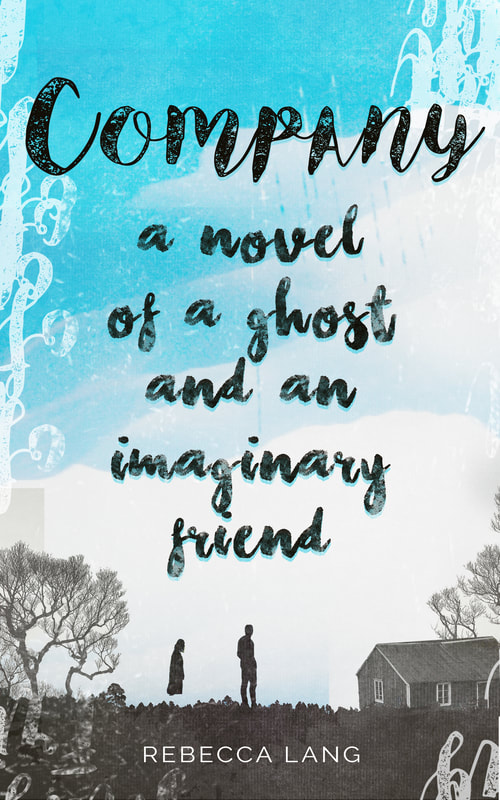
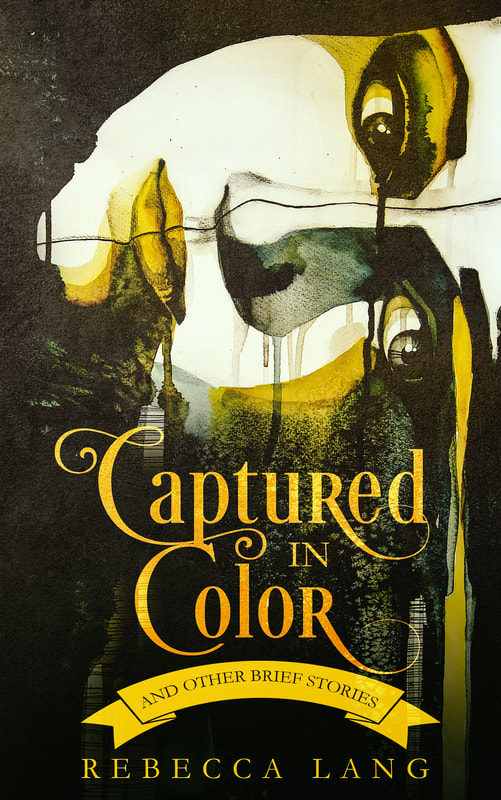
 RSS Feed
RSS Feed